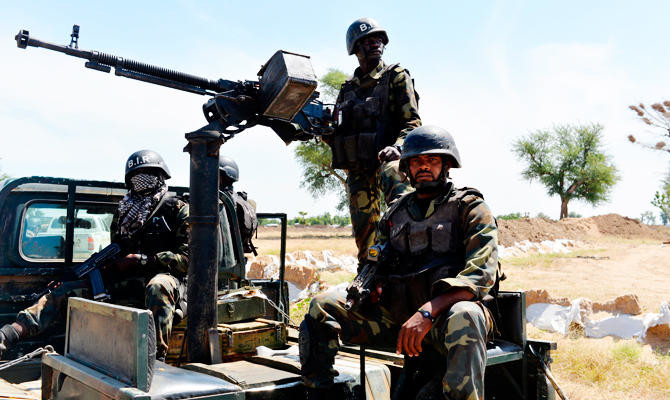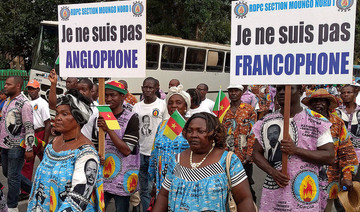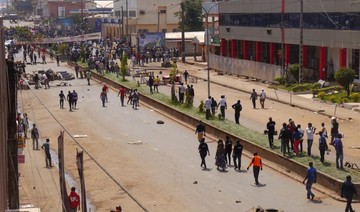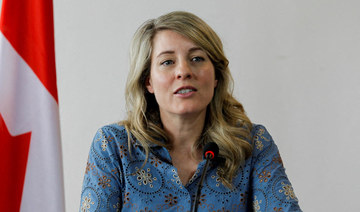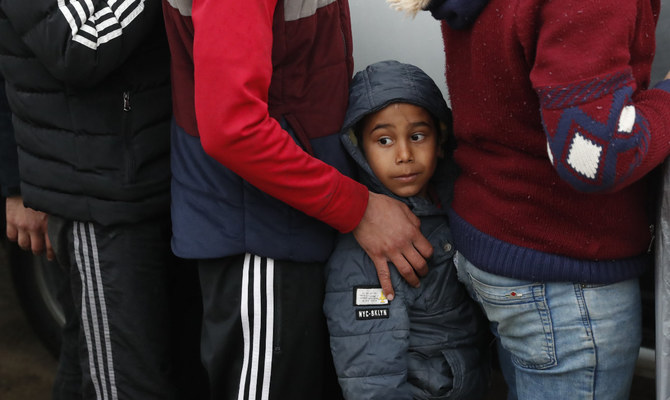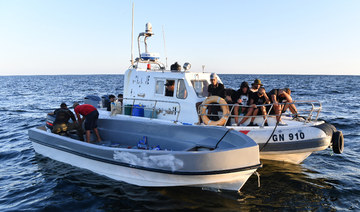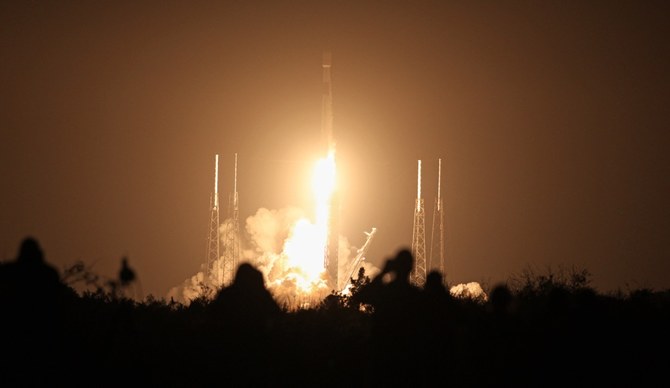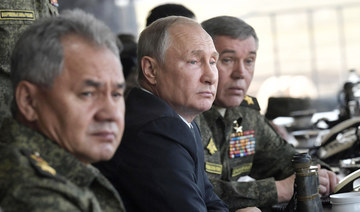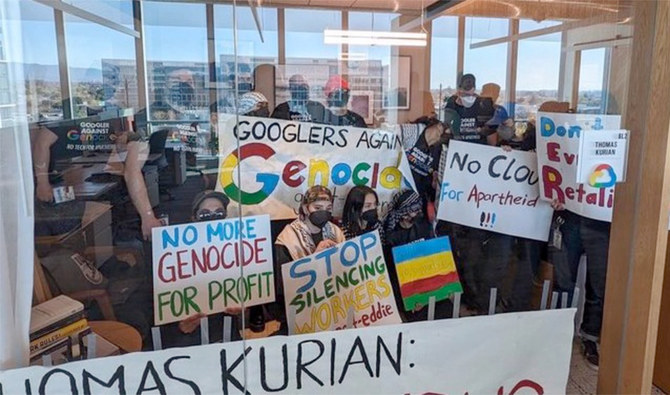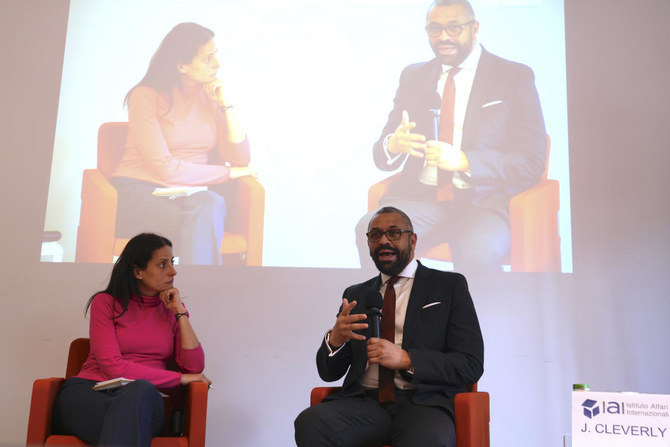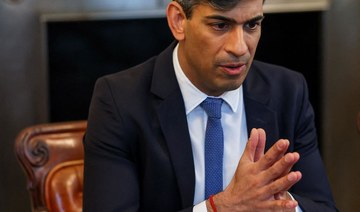YAOUNDE: A convoy transporting Cameroonian Defense Minister Joseph Beti Assomo was ambushed in the country’s restive anglophone region, leaving several attackers dead, state radio said Friday.
Four soldiers and a reporter were also injured in Thursday’s attack, other sources said, while the journalist said the convoy was ambushed again just a short time later.
News of the brazen assault came as the country’s 85-year-old president Paul Biya — who has ordered a crackdown in the troubled region — declared Friday he would bid for a seventh consecutive term in office.
Journalist Gregoire Djarmaila, who writes for the state daily the Cameroon Tribune and was injured by flying glass, said the attack occurred as Beti Assomo was heading for a visit to a military position seven kilometers (about four miles) from the town of Kumba.
The convoy comprised about 30 vehicles, including an armor-plated vehicle that was carrying the minister and six generals, he said.
It encountered a roadblock about halfway along the route, “and our vehicles were riddled by gunfire, coming from houses that been abandoned because of the war,” Djarmaila said.
The military escort returned fire, enabling the convoy to reach the military post.
“But no sooner had we left the post than we were attacked again. This time, they looked more numerous and determined... (they fired) on all the vehicles in the convoy.”
Djarmaila said that “our good luck was that they were using home-made hunting guns” rather than military weapons, adding that he experienced “40 minutes of hell.”
The ambush occurred in the heartland of an armed campaign to gain independence for the Northwest and Southwest Regions, a predominantly English-speaking part of the French-speaking West African state.
Years of resentment at perceived discrimination at the hands of the francophone majority fueled demands in 2016 for a return to the country’s federal structure.
Biya took a hard line, ruling out any concessions.
As the situation polarized, anglophone militants last October 1 made a symbolic declaration of independence.
They named Buea, the main town of Southwest Region which lies close to Kumba, as the capital of their purported state, Ambazonia. It has no international recognition.
A government crackdown then followed, plunging the two regions into almost daily acts of violence and retribution that have claimed scores of lives and forced tens of thousands from their homes.
Meanwhile, on Friday a non-governmental organization, the Center for Human Rights and Democracy in Africa, said 20 civilians were killed by the Cameroon army in two areas of the anglophone northwest region.
Fifteen civilians including a teacher and seven members of his family including his wife and three children, were killed on Thursday in Batibo, the group said in a statement posted on social media.
On Wednesday, it added, at Bambili, five students were ordered out of their beds during the night and killed.
Cameroon authorities were unavailable to comment on the allegations.
The violence has coincided with bloody cross-border incursions in northern Cameroon by Nigeria’s Boko Haram jihadists.
The twin crises have cast a dark shadow over a presidential election scheduled for October 7 — a fact that Biya, who has been head of state for 35 years, appeared to acknowledge in his announcement on Twitter.
“I will be your candidate in the next presidential election,” he said, adding that he was “aware of the challenges that we must face together for a Cameroon that is even more united, stable and prosperous.”
The main opposition, the Social Democratic Front (SDF), has already designated its candidate, Joshua Osih.
Other declared candidates include Akere Muna, a lawyer and former vice president of Transparency International, and Maurice Kamto, head of the Movement for the Rebirth of Cameroon (MRC).
The presence of a large English-speaking minority in Cameroon dates back to the colonial period.
The former German colony was divided between Britain and France after World War I.
The French colony gained independence in 1960, becoming Cameroon. The following year, the British-ruled Southern Cameroons were amalgamated into it, giving rise to the Northwest and Southwest regions.
According to a government report last month, anglophone separatists have killed 74 soldiers and seven police since late 2017 while more than 100 civilians had died “over the past 12 months.”
The toll has risen sharply since then. Since the start of this week alone, at least three policeman, including a superintendent, have been killed, and fighting erupted for several hours in Buea itself.
UN says 160,000 people have been internally displaced and 20,000 have sought refuge in neighboring Nigeria.


